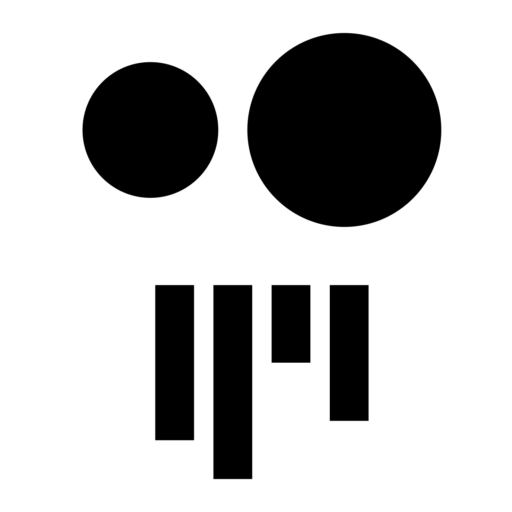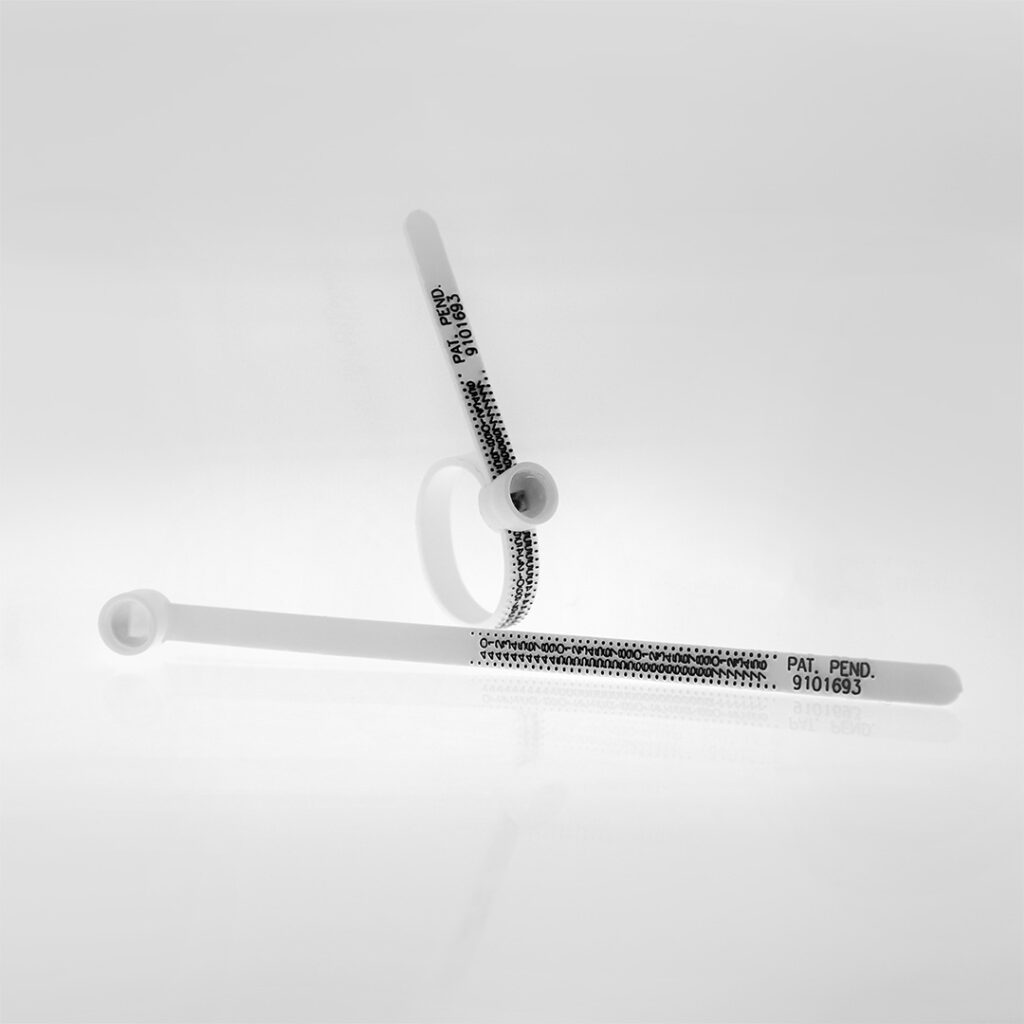When investing in pieces that will follow you throughout the years, finding a size that fits you comfortably is the first step. Dropping your jewelry due to a loose fit or feeling uncomfortable from tight fitting jewelry are valid reasons for putting your fine pieces away. As we want your jewelry to fit perfectly everyday, we have composed the following guide for you
Finding your ring size
To help you with finding your perfect sizing, we have listed two suggested methods down below, important things to keep in mind and a ring size conversion guide
Method 1 – The tailor-made piece
As we want you to find your precise fit, we offer you a free sizing tool that can be used in the comfort of your home. Once ordered, we will send it directly to your mailbox. The tool is very precise and you are welcome to use it as much as you want. For the best conditions of measuring, we suggest you to measure on a calm afternoon when you’re neither too warm nor too cold. This ensures that your finger is in its best condition for measurement.
How to:
- Put the measuring tool on your finger of choice
- Tighten the tool until you find a nice fit
- Make sure that you are able to take off and put on the measuring tool while it’s tightened. Sometimes the thickest part of your finger is not at the bottom.
- Read the value on the measuring tool and convert it to diameter via our size chart above. Always round up in case you are between sizes.
- Remember, wider rings have a tighter fit. The measured value is true for our slim rings only due to the tool being 4mm wide. For our wide rings, convert your size to diameter and add half a size (+0.5)
Method 2 – The reference piece
Take a ring that you know fits you well and measure the internal diameter of the ring with a caliper. Measure the ring several times in order to make sure that you have found the widest part of the ring. Do not apply unnecessary pressure. Read the value on the caliper to know your ring size in diameter. Round up if you are between sizes. If you do not possess a caliper, you can use a ruler or a paper with reference sizes to measure the diameter – however, make sure to measure it carefully. As always with ring sizes, round up if you are between sizes. The most common mistake people make is ordering rings which are too small
Important to keep in mind
There are a few important things to keep in mind regarding ring sizes
- Your hands tend to have different sized fingers. If you are right-handed your right hand tends to have larger fingers than your left hand and vice versa if you are left-handed
- Do not measure the size of your fingers when you are unusually warm. Hence, when you are unusually warm your fingers tend to be swollen
- Likewise, do not measure your fingers when you are unusually cold – when you are unusually cold your fingers tend to be shrunken.
- Your fingers are also affected by the time of day. The perfect time to measure your finger size, to assure a nice fit, is in the afternoon on a normal day in your life
- A wider ring has a slightly tighter fit. If you have a slim ring that fits nicely on a finger it is likely that a wide ring would feel tighter. We, therefore, recommend moving up half a size if this is the case. The same goes the other way around. For example: if you have a slim ring the size of 19 that fits nicely a wide ring with the size of 19.5 would probably have the same fit
- The most common mistake people do is ordering rings that are too small. If you are between sizes or unsure always round up or go with the larger option
- Your fingers adapt over time and a little patience is key. If you at first feel like a ring is slightly too small be aware that your finger will adapt and after a while of wearing the ring it will most likely feel good. The same applies if you just in the beginning feel like a ring is slightly too large and you are afraid of it falling off. After a while you will probably become comfortable with wearing the ring and this won’t bother you at all
Ring Size Conversion Chart
| USA & Canada | Europe (finger circumference) | Diameter (our sizes) |
|---|---|---|
| 4 , 4 ¼ | 47 | 15 |
| 4 ½ , 4 ¾ , 5 | 48 , 49 | 15.5 |
| 5 ¼ , 5 ½ | 50 | 16 |
| 5 ¾ , 6 , 6 ¼ | 51 , 52 | 16.5 |
| 6 ½ , 6 ¾ | 53 , 54 | 17 |
| 7 , 7 ¼ | 55 | 17.5 |
| 7 ½ , 7 ¾ , 8 | 56 , 57 | 18 |
| 8 ¼ , 8 ½ , 8 ¾ | 58 | 18.5 |
| 9 , 9 ¼ | 59 , 60 | 19 |
| 9 ½ , 9 ¾ | 61 | 19.5 |
| 10 , 10 ¼ , 10 ½ | 62 , 63 | 20 |
| 10 ¾ , 11 | 64 | 20.5 |
| 11 ¼ , 11 ½ | 65 , 66 | 21 |
| 11 ¾ , 12 , 12 ¼ | 67 , 68 | 21.5 |
| 12 ½ , 12 ¾ | 69 | 22 |
| 13 , 13 ¼ , 13 ½ | 70 , 71 | 22.5 |
| – | 72 , 73 | 23 |
| – | 74 | 23.5 |
Finding your necklace or bracelet size
To know how a necklace or bracelet will fit you, you just need to measure your neck/wrist size. The easiest way is to use a string or a wire and place it around your neck/wrist. Then measure the length of the string/wire and that is your size (you can also use measuring tape directly instead). If you want to get a feel for how different lengths will fit we recommend cutting out a string or wire in the length you are interested in. Then try it on to see how it fits you
Necklace & bracelet lengths
| Necklace lengths | |
|---|---|
| Short – 40 cm | Appropriate if you want your necklace to sit rather tight or if you know that you have a small neck. Note that with our short length you may have trouble closing the necklace if you have a wider neck |
| Regular – 50 cm | Our standard recommendation. The regular length fits nicely on almost any neck and is easy to wear. If you are unsure, go with our regular length |
| Long – 60 cm | If you want your necklace to have a loose fit and hang far down your chest the long length is the solution. With the long length, you may be able to remove your necklace over your head without opening it |
| Bracelet lengths | |
|---|---|
| S – 18 cm | Small is our standard recommendation for women |
| M – 20 cm | Medium is our standard recommendation for men |
| L – 22 cm | Large will fit you if you have a wider wrist. Always measure your wrist to be sure of your correct size |

